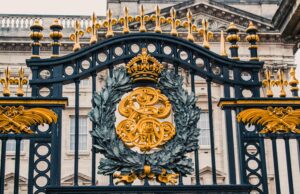Introduction
The British Royal Family is one of the most famous and enduring monarchies in the world. With a history spanning over a thousand years, the Royal Family continues to captivate global audiences through its blend of tradition, duty, and modern relevance. From royal weddings and births to charitable work and political influence, the monarchy remains a cornerstone of British identity.
In this article, we explore the history, key members, roles, and modern-day significance of the British Royal Family, along with their impact on culture, tourism, and global diplomacy.
A Brief History of the British Monarchy
The British monarchy traces its roots back to the early medieval period, with the first recognized king being Æthelstan (924–939 AD). Over centuries, the monarchy evolved through dynasties such as the Tudors, Stuarts, and Hanovers, shaping Britain’s political and cultural landscape.
Key historical moments include:
- 1066: William the Conqueror’s Norman invasion.
- 1215: Signing of the Magna Carta, limiting royal power.
- 1603: Union of the English and Scottish crowns under James VI & I.
- 1837: Queen Victoria’s reign, marking the modern monarchy.
- 1952: Queen Elizabeth II’s accession, the longest-reigning British monarch.
Today, the monarchy is a constitutional institution, with the reigning monarch serving as the head of state while Parliament governs.
Key Members of the Royal Family
1. King Charles III
Following Queen Elizabeth II’s passing in 2022, King Charles III ascended the throne. Known for his environmental activism and charity work, he continues the monarchy’s legacy while modernizing its approach.
2. Queen Camilla
As the Queen Consort, Camilla supports King Charles in royal duties and champions literacy and domestic abuse awareness.
3. Prince William & Catherine, Prince and Princess of Wales
Next in line to the throne, Prince William and Princess Catherine (Kate Middleton) are among the most popular royals. They focus on mental health, early childhood development, and environmental causes.
4. Prince Harry & Meghan Markle, Duke and Duchess of Sussex
After stepping back as senior royals in 2020, Harry and Meghan relocated to the U.S. but remain influential through their Archewell Foundation, advocating for social justice and mental health.
5. Other Notable Royals
- Princess Anne: Known for her tireless charity work.
- Prince Edward & Sophie, Duke and Duchess of Edinburgh: Support youth and arts initiatives.
- Prince George, Princess Charlotte, and Prince Louis: The future generation of the monarchy.
The Role of the Royal Family in Modern Britain
1. Constitutional & Diplomatic Duties
The monarch plays a ceremonial role in:
- Opening Parliament
- Approving legislation (Royal Assent)
- Representing the UK in state visits
2. Charitable Work
The Royal Family supports over 3,000 charities, including:
- The Prince’s Trust (founded by King Charles)
- Heads Together (mental health initiative by William, Kate, and Harry)
- Sentebale (Harry’s charity for African children)
3. Boosting Tourism & Economy
Royal events like weddings, coronations, and jubilees generate billions in tourism revenue. Landmarks such as Buckingham Palace and Windsor Castle attract millions of visitors annually.
4. Cultural Influence
From The Crown on Netflix to royal fashion trends, the monarchy remains a global media phenomenon.
Controversies & Challenges
Despite its popularity, the monarchy faces scrutiny over:
- Cost to taxpayers (Sovereign Grant funding)
- Colonial legacy and calls for reparations
- Prince Andrew’s scandals
- Harry & Meghan’s departure and media disputes
The Future of the British Monarchy
With King Charles III leading a slimmed-down monarchy, the institution aims to stay relevant by:
- Focusing on sustainability and youth engagement
- Balancing tradition with modernization
- Addressing historical controversies transparently
Prince William is expected to continue this evolution, ensuring the monarchy adapts to 21st-century expectations.
Conclusion
The British Royal Family remains a powerful symbol of continuity, tradition, and national pride. While facing modern challenges, its ability to evolve ensures its survival in an ever-changing world. Whether through ceremonial duties, philanthropy, or global influence, the monarchy continues to shape Britain’s identity and inspire fascination worldwide.

